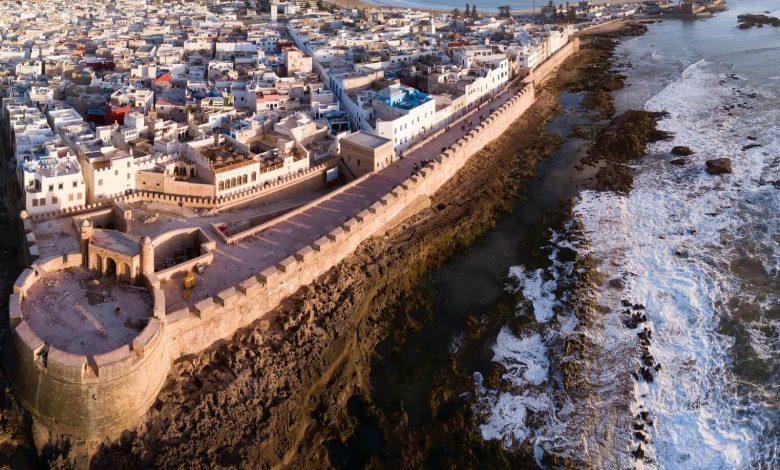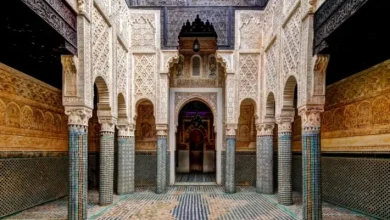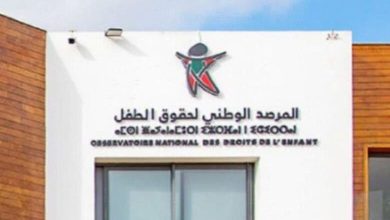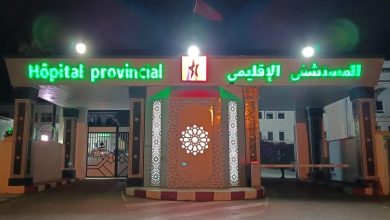Morocco/UNESCO: Essaouira fence of a training program for the benefit of 430 traditional textile craftsmen

This article was automatically translated from HIBAPRESS, the Arabic version:
HIBAPRESS / MAP
The city of Essaouira hosted, on Saturday, the closing ceremony of the “Strengthening the skills of crafts and craftsmen in design and creativity”, an initiative that benefited from 430 Moroccan craftsmen working in the textile, clothing and leather sectors.
Carried by the United Nations Organization for Education, Science and Culture (UNESCO), in partnership with the State Secretariat for Crafts and Social and Solidarity Economy, and with the support of the Alwaleed Philanthropies Foundation, this program aims to improve the quality of training in the textile, clothing and leather sectors, in order to promote employment and entrepreneurship Morocco.
Lasting 12 months, this continuing education allowed craftsmen, from nine cities of the kingdom (Essaouira, Marrakech, Agadir, Tetouan, Al Hoceïma, Béni Mellal, Rabat, Fez and Oujda), to benefit from technical and artistic support intended to enhance their know-how, strengthen their creative capacities and promote innovation in traditional Moroccan clothing.
The closing ceremony, chaired by the Secretary of State for Crafts and Social and Solidarity Economy, Lahcen Essaadi, took place in the presence in particular of the adviser to SM the King and founding president of the Essaouira-Mogador association, Mr. André Azoulay, the governor of the province, Adil El Maliki, of the President of the Communal Council, Tarik Ottmani, UNESCO for the Maghreb, Eric Falt, as well as several representatives of partner institutions, local authorities and program beneficiaries.
In a circumstance speech, Mr. Essaadi noted that this program is fully part of the enlightened vision of His Majesty King Mohammed VI aimed at the enhancement of human capital and the preservation of the craft heritage at the heart of the new Kingdom’s development model, highlighting the crucial role of continuous training to support the skills of craftsmen and offering them new perspectives in terms of creation and entrepreneurs.
Mr. Essaadi also highlighted the strong participation of women in this initiative, welcoming their commitment and their contribution to the vitality of the sector, while pointing out that the economic empowerment of women through the heritage professions remains a strategic priority of his department.
Recalling that the traditional clothing sector represents a major development lever, contributing 37% to employment in production crafts and generating 50% of the overall turnover of the sector, the manager said that the generalization of this type of program to other sectors and regions is among the priority axes of the State Secretariat, with a view to promoting a generation of craftsmen and innovation, innovation and competitiveness.
For his part, Mr. El Maliki expressed his pride in seeing the city of the Alizés hosting a program of this scale, which sheds light on the enormous potential of local artisans, highlighting joint efforts deployed at the provincial level to promote the economic inclusion of traditional trades bearers and support their skills rise through structuring partnerships.
For his part, Mr. Eric Falt welcomed this “collective success” and underlined the strong symbolism of this fence in Essaouira, a learning city of UNESCO and classified as World Heritage, explaining that this ambitious national program, implemented since 2023 by the UNESCO Regional Office in Morocco, aims to improve the quality, relevance and attractiveness of training in a strategic sector, women.
Speaking in turn, Mr. Ottmani was delighted with the synergy between the various partners to make Essaouira a creative and inclusive hub, ensuring that the municipal council will continue to support this type of initiatives which “valorize the crafts, energize the local economic fabric and contribute to the preservation of the cultural identity of this emblematic city”.
In a statement to the MAP, the president of the Marrakech-Safi regional craft chamber, Hassan Choumais, has highlighted the importance of this program for the region, claiming that the continuing education of craftsmen is an essential lever to allow them to adapt to market developments and contemporary requirements.
In similar declarations, beneficiaries of the program have welcomed this commendable initiative, indicating that they have acquired new working methods, a better understanding of market trends, as well as greater confidence in their ability to innovate while respecting the authenticity of Moroccan craftsmanship.
In addition, this ceremony was punctuated by a fashion show presenting the most innovative creations made as part of the program, a delivery of certificates to beneficiary craftsmen, as well as tribute to the trainers and supervisors who contributed to the success of this initiative.
As a reminder, this program has been articulated around several phases, ranging from the evaluation of needs to the implementation of training modules on design, fashion culture, innovation and excellence.
Through this initiative, the program partners intend to make Moroccan crafts a sustainable development engine, based on innovation, equal opportunities and the transmission of knowledge, while respecting the cultural and heritage values of the kingdom.







